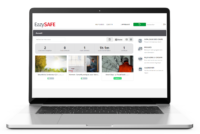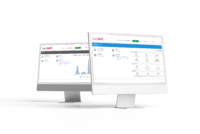The cornerstone of workplace safety: understanding risk assessments
We often hear the term ‘risk assessment’ in discussions about health and safety. However, many people are unaware of their critical importance. Risk assessments are not just a box-ticking exercise; they are the bedrock of any effective safety management system and a fundamental requirement under health and safety legislation. In simple terms, a risk assessment is a thorough examination of what could cause harm in a workplace. It allows us to evaluate whether we have taken enough precautions or if more is needed to prevent injury or ill-health. The process involves identifying hazards, assessing the associated risks, and implementing control measures to eliminate or reduce them.
The Legal and Practical Importance
Understanding key terms is vital. A hazard is anything with the potential to cause harm, while a risk is the likelihood of that harm occurring, combined with its severity.

Legal Compliance:
For all employers in Ireland, regardless of business size, conducting risk assessments is a legal obligation under the Safety, Health and Welfare at Work Act 2005. A written record must be maintained and regularly reviewed.

Effective Risk Management:
Beyond compliance, these assessments are a structured tool to identify hazards, evaluate the effectiveness of existing controls, and prioritise resources to manage significant risks.

Promotes Employee Awareness:
They also create crucial awareness among employees, whose involvement is key to identifying practical and effective safety measures15.
The 5-Step Risk Assessment Process
The risk assessment process can be broken down into five key steps:
- Identify the hazards: Walk around the workplace, consult with employees, and review accident records to find what could cause harm.
- Identify who could be harmed: Consider employees, contractors, visitors, and the public, paying special attention to vulnerable groups, in particular new entrants in the company or temps.
- Determine the level of risk: Evaluate the likelihood and severity of potential harm to prioritise the most significant risks.
- Control the risk: Implement robust control measures to eliminate or minimise the risks identified.
- Review your assessment: A risk assessment is a living document that must be reviewed annually, or whenever there is a significant change to work practices, equipment, or following an incident.
A risk assessment should be conducted whenever a new task, process, or piece of equipment is introduced, an accident or near miss occurs , a change in work environment or workforce raises new risks, or when a worker is pregnant or has specific vulnerabilities. Regular annual reviews are also a legal requirement and best practice.
Managing health and safety can seem daunting, but it doesn’t have to be At EazySAFE, we provide comprehensive support to help businesses build a strong safety culture. Our consultants can work with you to develop robust safety statements and site-specific risk assessments, ensuring you meet your legal duties. By partnering with a competent provider, you can ensure your risk assessment is not just compliant, but a practical and effective tool for protecting your entire workforce.

Discover our Safety Training Platform
Train your employees anytime, anywhere with our environmental, health, safety and wellness training platform.

TAILORED TRAINING
Discover our safety training courses and ehs onboardings, which can be customised and offered in several languages.

SAFETY MANAGEMENT
Ensure the distribution of your safety policy by training your permanent, temporary or seasonal staff.

GLOBAL MONITORING
Simplify the management of your safety policy thanks to the numerous dashboards and training reports.
